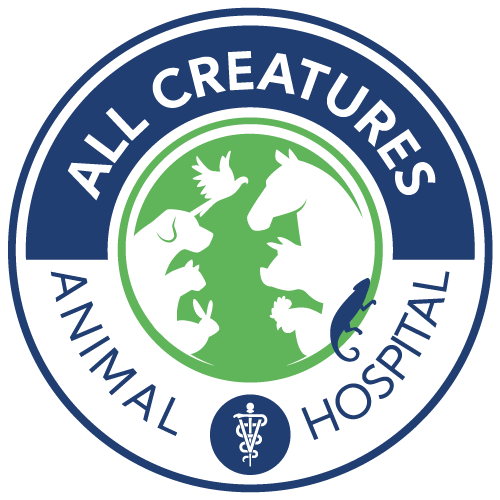What is dog cardiology, and what are the most common cardiovascular conditions you see in dogs?
Cardiology for our dogs or cats, and all our species, is basically a study and focus on our patients' heart health. Cardiology, heart, that's what it entails.
For our dogs, our most common cardiac condition is valvular disease. A lot of times, our dogs have mitral valve disease, especially as they get older. Another common cardiac disease in our dogs is DCM, dilated cardiomyopathy. Those are likely our two most common cardiac diseases.
Are certain dog breeds more at risk for heart-related conditions?
There are some breeds that are more prone to some cardiac diseases than others. Our valvular disease seems to be very prominent in most of our dog breeds.
However, we do have some that tend to have a higher probability of disease than others. Our Cavalier King Charles is one. Some of our boxers and Great Danes are some of the other breeds, but many breeds are predisposed to cardiac disease.
How soon should I bring my dog in to see a veterinarian if I suspect that they have heart disease?
If you suspect they have heart disease, we should bring them in sooner rather than later, and we should assess that. My question would be why you think that they have heart disease.
One of the other heart diseases that I did not mention, but depending on where you live in the country, especially us here in Texas, heartworms is an infectious process that causes heart disease, and that is another one of our more common heart diseases here in Texas.
Can a dog have a heart attack?
Heart attack. As a general term, yes, we can have an event that can cause the heart not to function in a way that would sustain the dog's life. We can have disease processes that could prevent the dog from having what we would call a "heart attack." It's a little different from most human heart attacks that we think about, but yes, we can have that.
Can dogs live a normal life with heart disease?
They can. It would depend on what stage they are at. We do stage heart disease in our dogs, and depending on the stage and their clinical symptoms at presentation, it would dictate how it would be managed and what their prognosis would be.
Also, depending on their clinical presentation, if medical therapy was warranted, how they respond to that medical therapy would affect their prognosis, for better or worse, down the line.
What is congestive heart failure, and how does it affect dogs?
Congestive heart failure is congestion in our dogs' lungs, which causes fluid to build up in their lungs, preventing them from exchanging oxygen well enough to breathe well. That is typically caused by a cardiac disease process that is preventing the heart from pumping efficiently.
What are some common signs of heart disease in dogs?
Some of our dogs can have heart disease and have no symptoms. They can be asymptomatic. Many of our dogs that present and are tested for heartworms and test positive can have heart disease, cardiac disease, and be asymptomatic at the time of testing and diagnosis of the heartworms.
We can also have clinically symptomatic dogs that are having trouble breathing, have an exercise intolerance, and are coughing a lot more than typical for them. They can have anorexia. There are several symptoms that we could see, but they can be asymptomatic.
How will a veterinarian go about diagnosing dog heart disease and other cardiovascular conditions?
The mainstay of most of our diagnostics for our cardiac workups is going to be chest X-rays, EKG, an echocardiogram, blood pressure, and there are some blood tests out there that we can run to assess the heart.
What is the treatment for congestive heart failure in dogs?
It'll depend on their presentation, but most of the time it's supportive care. Depending on when they present and how much respiratory distress they're in, they may require supplemental oxygen. Usually, diuretics and, depending on how poorly the heart is functioning, they may need some medication to help the heart start pumping better to allow for better perfusion.
How often should my dog be checked by a veterinarian if they have a heart condition?
Based on the stage that they're in, it may just be every six to 12 months they need a follow-up. If they are not stable or they're at a more advanced stage, then the recommendation would certainly be more frequent checkups.
Can exercise benefit dogs with heart disease? And if so, how much?
Again, that would depend on the stage of the heart disease that they're in. If they're asymptomatic, we would want the dog to be able to exercise and do what they feel comfortable doing, within the dog's limits.
For our more advanced cardiac patients that really have exercise intolerance, limited exercise is probably warranted at that time, again within the limits of the dog. We really ask that the owner look at and listen to the dog and really allow them to dictate how much exercise they should be exerting.
If you live in or near Granbury, TX, and are looking for horse care, contact us at (817) 326-6262 to set an appointment. You can also email us at [email protected]. Our staff would love to talk with you!
